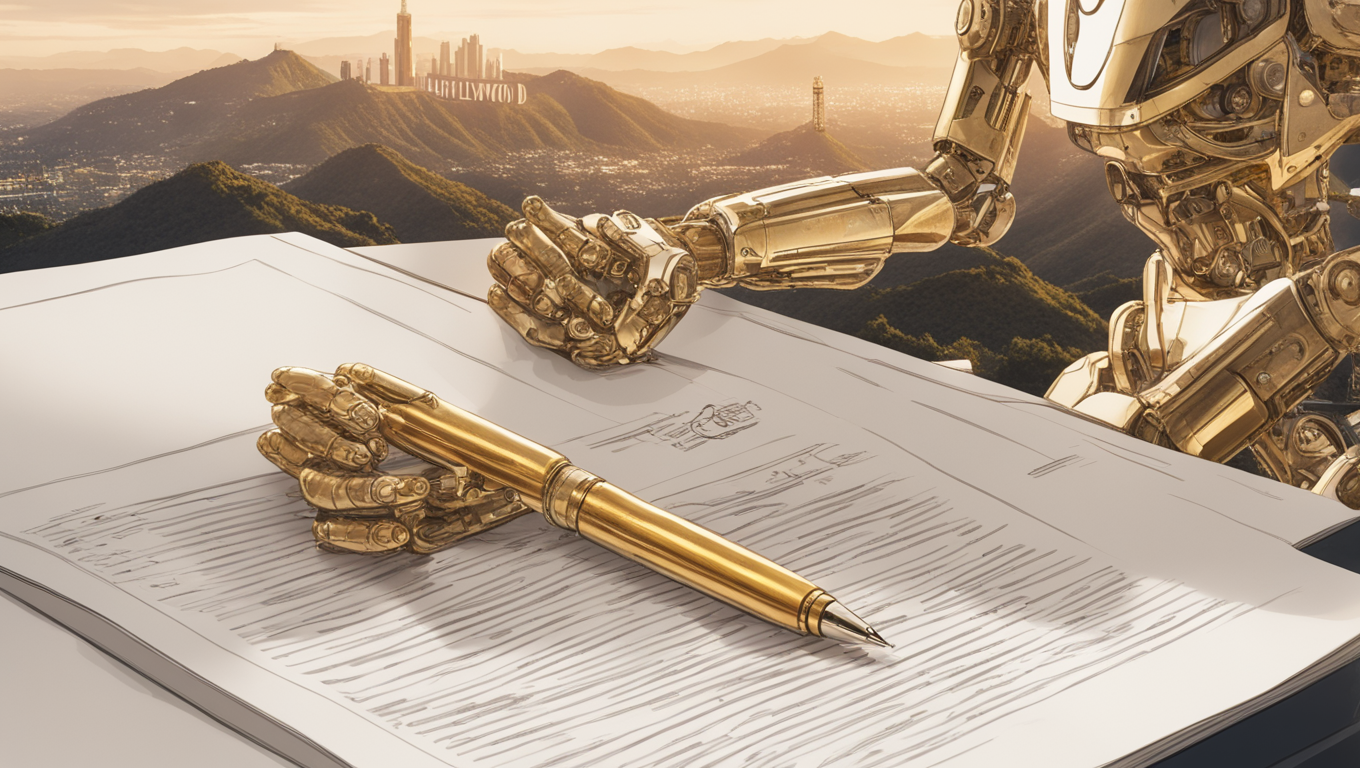Hollywood studios and writers have reached a tentative labor agreement that could shape the future of AI in the entertainment industry. According to the Wall Street Journal, under this agreement, studios would be able to use artificial intelligence to train models based on the work of writers, but in return, the writers would receive credit and compensation for their contributions, even if AI tools are used.
This agreement addresses a pressing issue in the industry. Entertainment executives were eager to retain the right to train their own AI tools using TV and movie scripts, fearing that if they didn’t, AI tech platforms would take the lead. The fear is not unfounded, as AI platforms are already training their models on written materials from Hollywood. By reaching this agreement, studios are ensuring their place in the AI revolution while also acknowledging the importance of recognizing writers' contributions.
The Writers Guild of America (WGA), which represents around 11,500 film and television writers, recently issued a preliminary three-year agreement with major studios. This agreement is still subject to approval by the union’s leadership and members, but if ratified, it could put an end to one of the two strikes that have significantly impacted film and television production in California.
While this agreement could be seen as a breakthrough, the fight is far from over. The actors and performers' union is still on strike, with demands similar to that of writers, such as higher wages and protection against AI use. Additionally, video game voice actors and motion capture performers have authorized a strike in case labor negotiations fail.
This agreement could set a precedent for future negotiations in the industry. As AI continues to play an increasingly prominent role in the world of entertainment, it becomes essential to establish protocols that protect the rights and interests of all parties involved.
In a statement, John Doe, a prominent writer and member of the WGA, expressed his hope for the future, saying, “This agreement is a step in the right direction. It recognizes the value of writers' work and ensures that we are not left behind in the AI revolution. But there is still more work to be done. We must continue to fight for fair wages and protections against AI tools that could potentially replace human creativity.”
Only time will tell how this agreement will shape the future of AI in the entertainment industry. As the union’s decision looms and negotiations with other unions continue, all eyes are on Hollywood, waiting to see how this historic moment unfolds.





Use the share button below if you liked it.